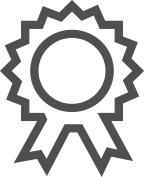48th (USA) Contemporary History Auction
Die Auktion mit 518 Losen endete am 1. May 2022. 76% aller Lose wurden verkauft
-
Bezahlung
-
WIE KANN ICH FÜR MEINE BESTELLUNG BEZAHLEN?
AUKTIONAlle erfolgreichen Gebote werden automatisch zu einer einzigen Bestellung zusammengefasst. Für diese können Sie uns nach Auktionsende in Ihrem persönlichen Kundenkonto Ihre bevorzugte Bezahl- und Versandart oder eine alternative Lieferadresse mitteilen.
Wenn wir diese freiwilligen Angaben nicht von Ihnen erhalten melden wir uns automatisch im Laufe des Montags nach Auktionsende mit einer Zahlungsanweisung per Email. Basierend auf Erfahrungswerten schlagen wir Ihnen die bequemste Bezahlmehtode und die günstigste Versandart vor. Sie möchten Ihre Bezahl- und Versandart ändern oder eine alternative Lieferadresse angeben? Kein Problem! Besuchen Sie Kundenkonto/BESTELLUNGEN oder kontaktieren Sie uns per Email.
BESTELLUNGEN IM ONLINESHOPWählen Sie während der Bestellung Ihre bevorzugte Bezahl- und Versandart und schicken Sie diese ab. Sie erhalten Ihre Zahlungsanweisung spätestens am darauffolgenden Tag per Email. Die Zahlungsfrist beträgt sieben Tage. Sie planen eine Bestellung per Ratenzahlung zu begleichen? Bitte sprechen Sie uns gerne vor Ihrer Bestellung darauf an.
Für mehr Informationen zu Bezahlung und Versand, besuchen Sie unsere Häufigen Fragen.
WIR AKZEPTIEREN FOLGENDE BEZAHLARTEN
-
-
Versand
-
IHRE BESTELLUNG IN DEN BESTEN HÄNDEN
VERPACKUNG & SENDUNGSVERFOLGUNGNach Zahlungseingang versenden wir Ihre Bestellung für gewöhnlich am darauffolgenden Werktag. Wir bestätigen den Eingang Ihrer Zahlung per Email und informieren Sie zur Versandvorbereitung. Nach Abholung der Sendung durch unsere Versanddienstleister teilen wir Ihnen die Sendungsnummer per Email mit. Den Status Ihrer Sendung können Sie auch jederzeit unter Kundenkonto/BESTELLUNGEN einsehen. Ihre Rechnung geht Ihnen automatisch am Tag des Versands zu.
VERSAND ZU EINER ALTERNATIVEN ADRESSEBevorzugen Sie für eine Bestellung einen Versand zu Ihrer Arbeitsstelle? Sie sind im Urlaub und wünschen den Versand zu einer Packstation oder einem Freund? Kein Problem! Diese Änderungen können Sie jederzeit unter Kundenkonto/BESTELLUNGEN vornehmen. Alternativ können Sie natürlich jederzeit auch per Email informieren.
UNSERE PARTNER FÜR DEN VERSAND
-
-
Garantie
-
 GARANTIE!
GARANTIE!Alle angebotenen Artikel werden von unseren Experten akribisch auf deren Echtheit geprüft und detailiert beschrieben. Wir bieten ausschließen zeitgenössiche Originale an. Etwa 15% aller Kundeneinlieferungen ensprechen unseren Anforderungen nicht und werden retourniert.
Gekauft wie gesehen? Nicht bei uns. Im Gegensatz zu traditionellen Auktionshäusern bieten wir volles Rückgaberecht of Originalität an. Sollten Sie mit Ihrer Bestellung nicht zufrieden sein, können Sie die Bestellung innerhalb 14 Tagen widerrufen. Bitte kontaktieren Sie uns vor dem Rückversand. Für mehr Einzelheiten besuchen Sie bitte unsere häufigen Fragen.
In eigener Sache: Bieten Sie nur auf Lose, die Sie auch erwerben möchten. Bitte vermeiden Sie Gebote nach Auktionende zu stornieren. Sollten Sie ein fehlerhaftes Gebot abgegeben haben, informieren Sie uns bitte umgehend. Wir löschen Ihre Gebote gerne bis 24 Stunden vor Ende der Auktion.
-
Land Deutsches Reich 1918 - 1945
Maße 27 x 20 cm
Gewicht
 US Los US1-271
US Los US1-271EAN 4000000000960
 US Los US1-271
US Los US1-271Epoche 1918 — 1945
Land Deutsches Reich 1918 - 1945
Material
Maße 27 x 20 cm
Hersteller
Gewicht
Land Deutsches Reich 1918 - 1945
 US Los US1-271
US Los US1-271Maße 27 x 20 cm
EAN 4000000000960
Hersteller
Gewicht
Deutsches Reich 1918 - 1945
Sportfest Breslau 1938 - Breslau Bekenntnis zu Deutschland
Beschreibung
Booklette: “Breslau Bekenntnis zu Deutschland” Breslau, Commitment to Germany. 100 pages of illustration and fotos on the actual event.
The Deutsches Turn- und Sportfest (German Gym and Sports Celebration) was the last big sports event organized by the Nationalsozialistischer Reichsbund für Leibesübungen. It took place in Breslau (now Wroclaw) the most important city of Silesia, now in Poland. The venue was staged in July 1938 at the city's Hermann Göring Stadium, later renamed "Stadion Olimpijski", following the trademark grandiose style of the Nazi Sports Body.
This highly nationalistic sports event was officially commemorating the 125th anniversary of the historical German Wars of Liberation against Napoleon and the first award of the Iron Cross in the city of Breslau itself in 1813. It was staged as a grand patriotic, expansionist occasion, illustrating the clamor for a Greater Germany to the public. This event gathered German athletes brought from many different parts of the world, like Argentina, South West Africa, Italy, the US and South Africa. It also became a gathering of representatives of German ethnic minorities, mainly from Eastern Europe (Siebenbürgen, Banat) who staged processions dressed in their colorful folkloric costumes, a display of the Nazi Drang nach Osten policies.
Not only sports competitions and athletes' parades took place, but also numerous military, civil, and folklorical-costume processions in the mains streets of the city of Breslau.
Zustand
2-
Verkäufer
History Trader Inc., 521 Thorn Street #165, Sewickly, PA 15143-0165, USA












